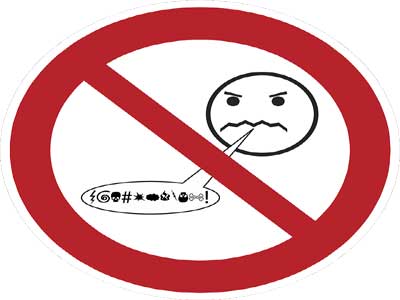Know your human rights
The Universal Declaration of Human Rights is the key document guiding human rights advocacy. It is based on the universality, inalienability and indivisibility of human rights and is founded on the core values of equality, non-discrimination and human dignity.
“Knowing one’s human rights is an important step that often gets forgotten,” Reuter said. “Learning the content and extent of basic human rights will give people the tools and language needed to address certain issues. Discrimination, suppression, racism, marginalization, and violence against individuals or groups are human rights violations that must be confronted.”
Reuter urges reporting human rights violations to the authorities. If an incident occurs in the workplace, inform your human resources representative or a diversity officer.
Speak up in the face of injustice
Once you know what human rights and human rights violations are, Reuter encourages everyone to pay attention and speak up in the face of injustice. Pay attention to what happens in your everyday life. Document, record and monitor what is going on around you, and if you see injustice, say something.
“The goal is to make everyday suppression of a specific group based on race, color, religion, ethnicity, immigration status, sex, gender, sexual orientation, age or disability status just as unacceptable as the violence and hatred,” Reuter said. “It’s these normal, hidden human rights violations that are particularly dangerous to our society and that we have to confront together.”
Be aware of your own biases
One of the ways to overcome biases and stereotypes is to engage with those who are different. Research shows that interpersonal contact is one of the best ways to reduce prejudice. This theory is called contact hypothesis. The theory suggests that under appropriate conditions interpersonal contact is one of the most effective ways to reduce prejudice between majority and minority groups.
“It is incredibly important to be aware of your own biases,” Reuter said. “We all have them. Realize if you cross the street when a person of a different race walks toward you. Notice if you assume that someone is less competent because she is a woman, a person of color or Muslim. Think about systemic racism and structural violence in your own environment, and find ways to confront them. Actively learn about how our society has grown to marginalize some to the benefit of others. I encourage people to reach out and make new friends outside of their race, religion and gender.”
Join a movement or a cause that fits your passions and interests
Join a movement, and talk with others who feel the same. Look for a rally in your community. Organize a vigil. Participate in a discussion. Engage with others. Get together formally or informally. Look for opportunities to talk.
“Not all of us are born to be activists or community organizers,” Reuter said. “We cannot all become Martin Luther King, Nelson Mandela or Leymah Gboweee; but we all can contribute by supporting the movement. Think about what you are good at and how your skills and talent can be used to move a cause forward.”
Call your representatives
One of the most effective ways to achieve policy change is to call local and state representatives. Reuter says calling is much more impactful than writing an email, Facebook message or letter. She advises anyone contacting their local representative to be polite to the staff, which is who you will most likely get on the line. Their staff members do not have influence on the decision-making process, but they will record your call and do not mind taking opposing views as long as the conversation is civil.
Educate others
This step does not have to be formal. You can educate others by leading by example, or by bringing a friend along to a conversation you are having. It can happen person to person, on social media or on any other platform you use to connect with others. Creating art, poems and performances are incredible ways to get your point across to people who might find that formal ways of education do not resonate with them.
Donate
One of the fastest and easiest opportunities to make an impact is to donate to an organization that fights for human rights or civil rights.
There are a number of organizations dedicated to ensuring the preservation of individual rights and liberties.
Take care of yourself
Confronting issues such as hatred, violence and suppression can take a mental and physical toll on anyone. Reuter says it is important to know what you can and cannot do, what you are willing to do, and what your priorities are.
“Focus on the local level. Start in your own community,” Reuter said. “That world is changed person by person, but don’t forget to take care of your needs. When you start to feel overwhelmed, shut down Facebook, Twitter, cable news and other forms of media. Enjoy time with your friends and family. Be kind to yourself, and realize that real progress takes patience.”

















Related Items
A plea to recognize the legal rights of our rivers
AI or human reviews are indistinguishable to customers!
Unsafe environment, colonial policing are chief threats to human rights